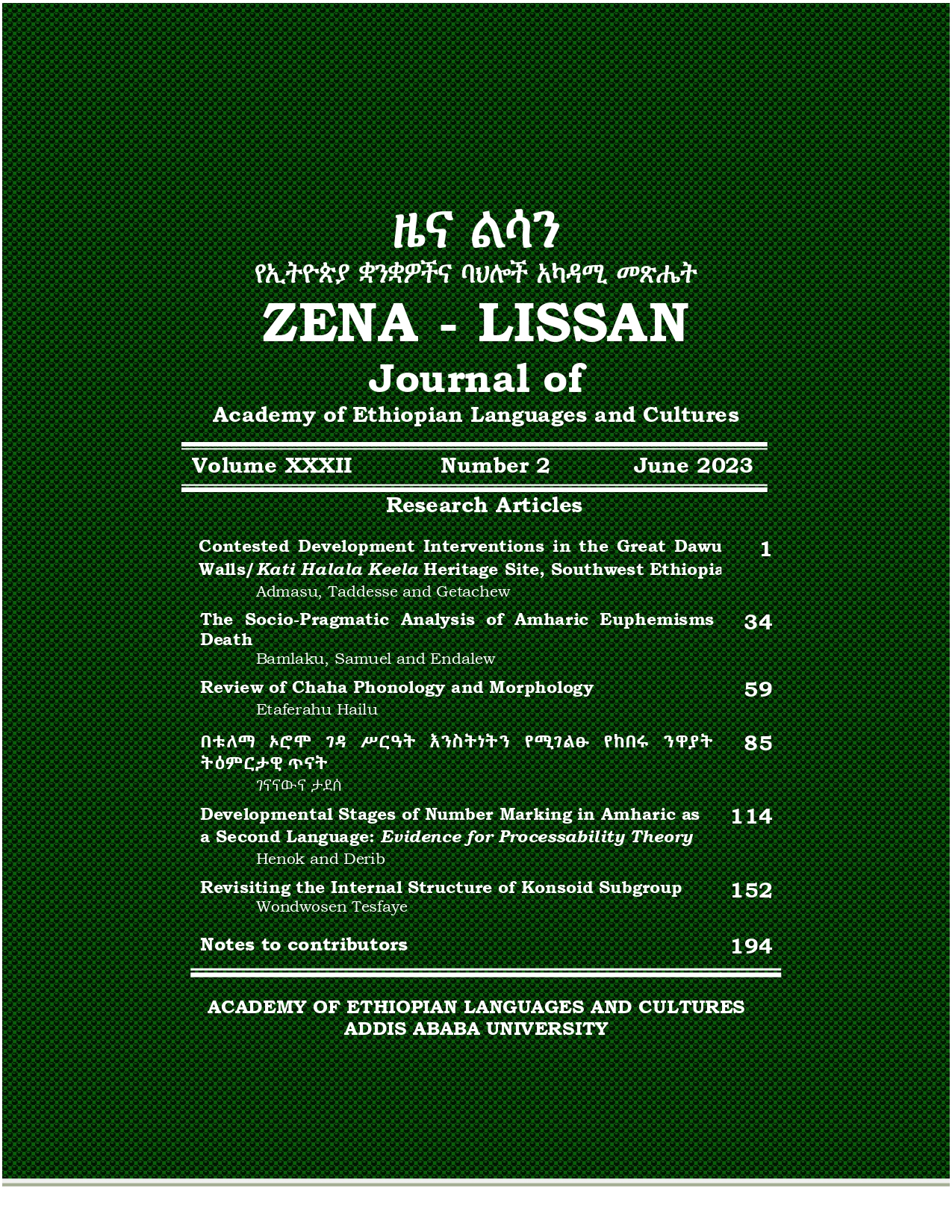The Socio-Pragmatic Analysis of Amharic Euphemisms of Death
Abstract
AbstractThe main objective of this study is to examine the socio-pragmatic analysis of Amharic euphemisms of death within the frameworks of relevance and politeness theories. The study used a qualitative research design and employed focus group discussion, semi-structured interviews, and introspection for the purpose of data gathering. The results show that death is taboo in Amhara society in the study’s realms, including the church, mosque, home, school, and hospital. As a result, they refrained from mentioning the deaths of infants, children or youths, adults, and elderly people. Instead, they use euphemistic expressions. The linguistic devices that are used in euphemizing taboo expressions in Amharic include metaphor, idiom, understatement, overstatement, and borrowing. Hence, research participants in the study locations employed different techniques for avoiding anxiety, maintaining calm, and being polite.
Keywords: [taboo, euphemism, death, euphemistic strategies, face]
